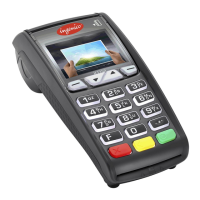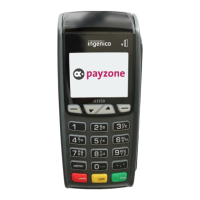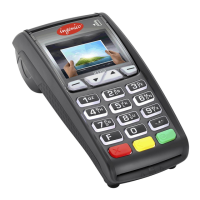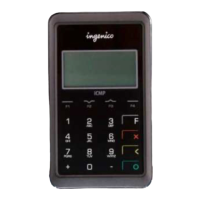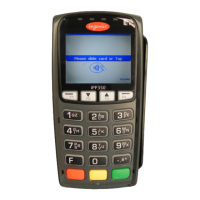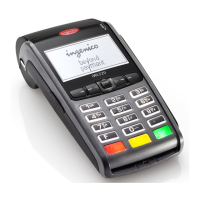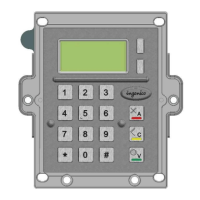Technical Manual ICT220 • 23/36
Copyright © 2009 Ingenico All rights reserved
• Multitask management: Availability of a pre-emptive real-time environment, based on
interruptions, events and mail boxes. This management enables simultaneous processing,
which improves the terminal's performance.
• Input/output management: This is carried out under interruptions, generally in buffered
mode. Thus, the applications developer enters a "conventional" C context.
• System alarms management: Certain incidents (e.g. swipe card reading error) detected
by the OS are recorded. They can be used later by the maintenance subsystem during
remote or local diagnostics.
• Application alarms management: A number of incidents detected by the applications can
be saved by the OS at their request. This recording is used later as in the case of system
alarms.
• Application isolation management: The OS provides the mechanisms described in the
section on software isolation and memory protection. Between software isolation is
managed by an MMU (Memory Management Unit).
• Applications download management: The OS offers the downloading services described
in the section "Software download"
2.5. Manager
The main functions offered by the manager are the following:
• Application management;
• Terminal initialisation;
• Terminal maintenance;
• Card recognition and routing to the application.
When EMV DC module is present, it selects the application:
• EMV applications (conform with EMV level 2);
• non EMV applications.
2.5.1. Terminal initialisation
2.5.1.1. Operating requirements
To function, the terminal has to be equipped with its OS, the applications manager and at
least one application. If one of the three components is missing, the terminal warns the
operator who has to load it.

